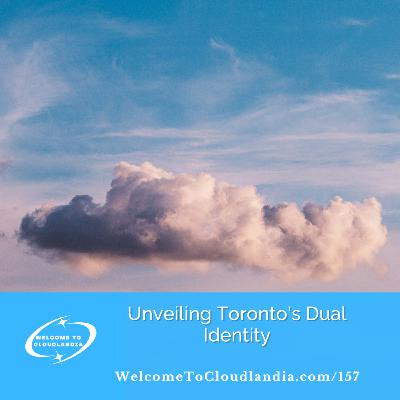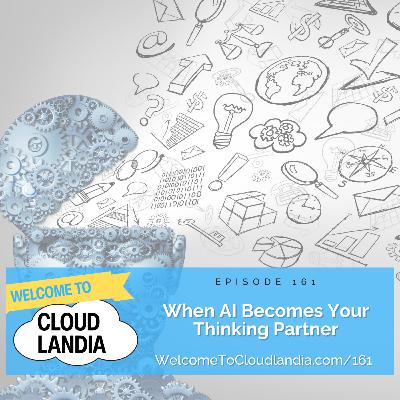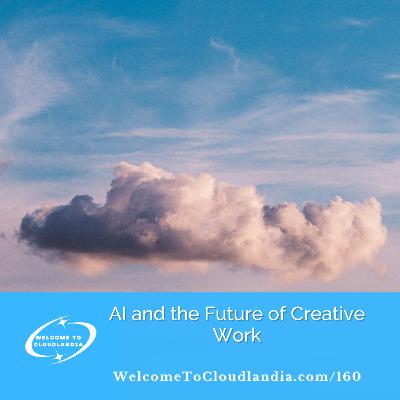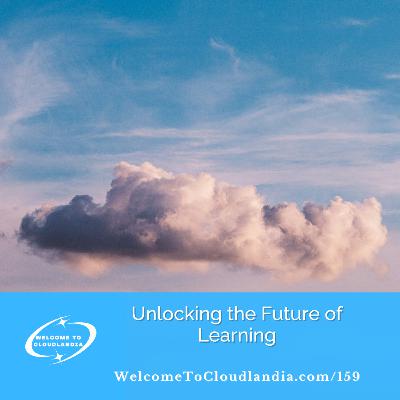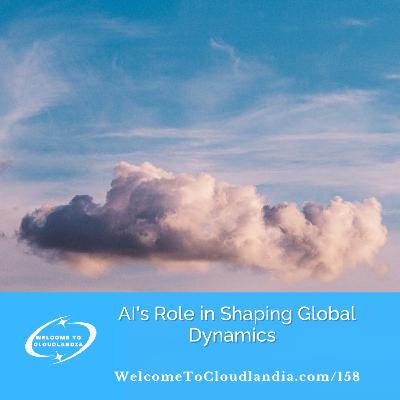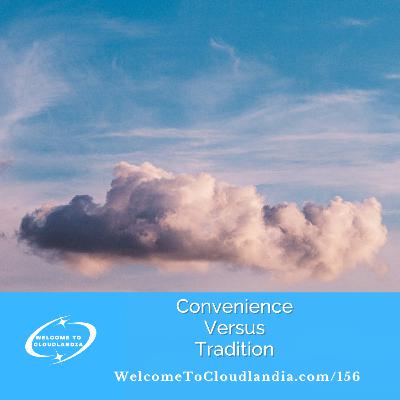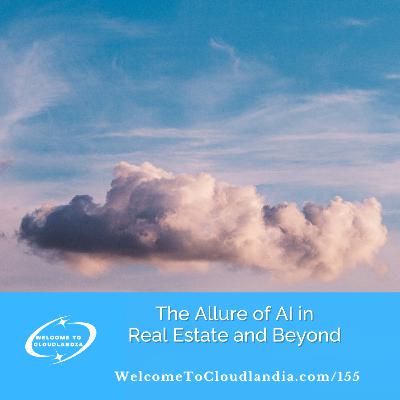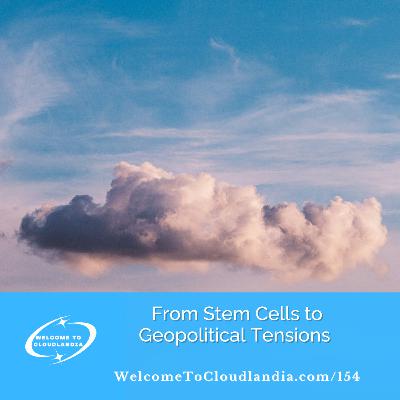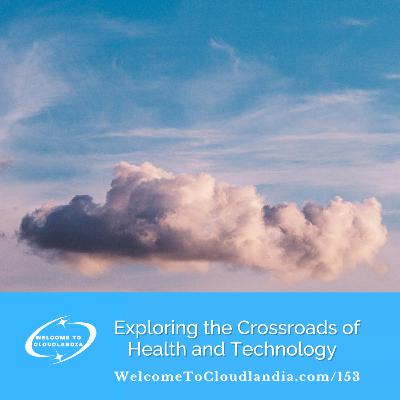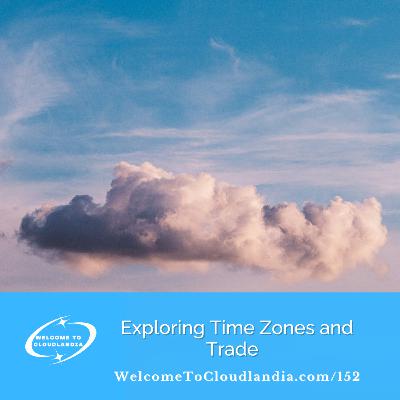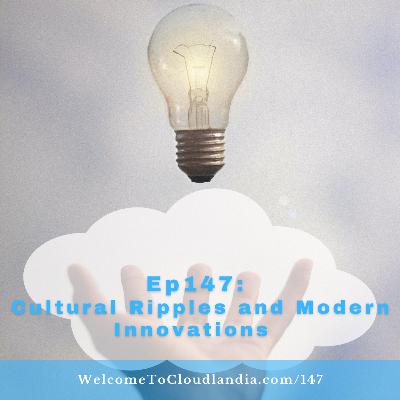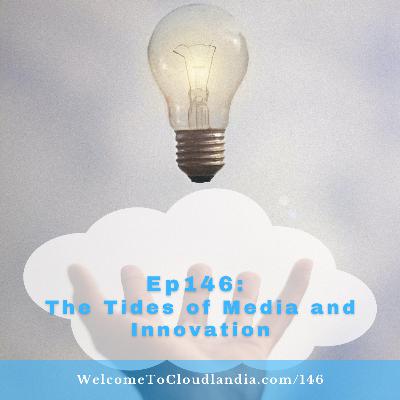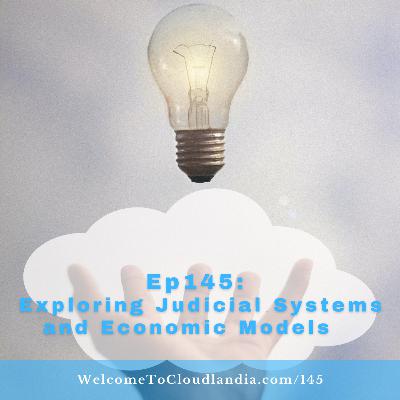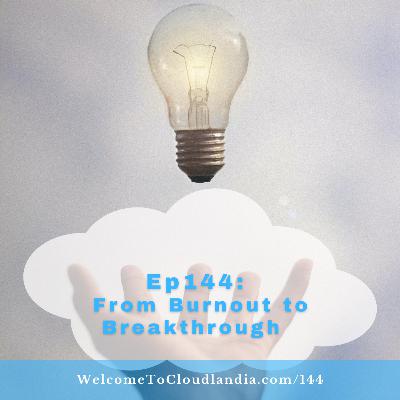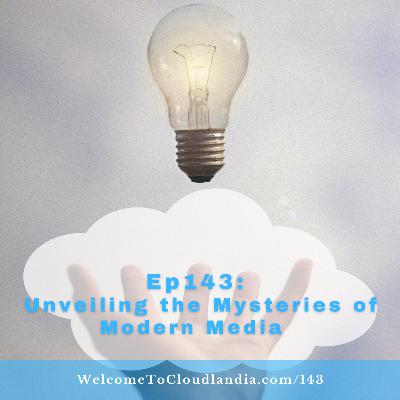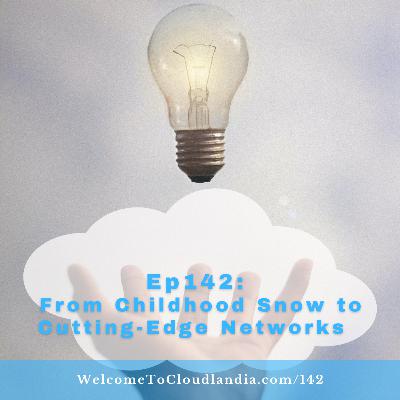Ep157: Unveiling Toronto's Dual Identity
Description
In this episode of Welcome to Cloudlandia, I reconnect with Dan Sullivan for another wide-ranging conversation that blends current events, history, technology, and human behavior.
We start by reflecting on the safety and comfort of life in Canada while discussing the news of missile strikes in Israel. From there, we explore the idea that innovation often advances when entrenched leaders move on—whether in science, business, or geopolitics. Dan brings up Thomas Kuhn’s idea that progress happens after the old guard exits, creating room for new ways of thinking.
Our conversation shifts into the role of AI as a horizontal layer over everything—similar to electricity. We compare this shift to earlier transitions like the printing press and the rise of coffee culture. Dan shares his belief that while AI will transform systems, the core of human life will still revolve around handled needs and personal desires.
We wrap by talking about convenience as the ultimate driver of progress. From automated cooking to frictionless hospitality, we recognize that people mostly want things to be “handled.” Despite how fast technology evolves, it’s clear that unless something is of deep personal interest, most people will let it pass by. As always, the conversation leaves room for reflection and humor, grounded in the reality that technological change doesn’t always mean personal change.
SHOW HIGHLIGHTS
Links:
WelcomeToCloudlandia.com
StrategicCoach.com
DeanJackson.com
ListingAgentLifestyle.com
TRANSCRIPT
(AI transcript provided as supporting material and may contain errors)
Dean: Mr Sullivan,
Dan: Mr Jackson, I hope the rest of your day yesterday went well.
Dean: Oh, delightful, I learned stuff yesterday. That was a very nice day, beautiful, beautiful weather today. You know what, dan, if you could, as an option at the Hazleton, upgrade to include your perfect weather for $1,000, this is what you'd order, it's this kind of day. Yeah, mid-70s perfect white fluffy clouds. Yes, it's why.
Dan: Living in a safe, globally unimportant country.
That's exactly right. Holy cow, I don't know if you've seen, yeah, what's uh? I woke up like literally just a few minutes ago seeing all the, uh, the raining missiles on israel right now from Iran. Have you seen that this morning?
Dean: Oh yeah, there's a lot of them. Most of them don't hit anything and most of them are shot down, but still it puts some excitement in your day.
Dan: I mean really, yeah, these ones look like. They're something unique about these ones that they're supersonicersonic and many of them are hitting, yeah, different than what we've normally seen. Like normally, when you see it, it's the, the iron dome or whatever is, you know, intercepting them, which is always interesting, but these ones are like Direct, like you can see them hitting in inrael that's. I mean, could you imagine, dan, like you, just look at how geographically we are. You know we've won the geographic lottery in where we're positioned here, you know, just realizing that's never. Even though you can, all you know you always take precautions with the umbrella above us, over the outside.
Dean: But I mean still that today. I've lived in Toronto for 54 years now, just past the anniversary, the 54th anniversary and I think that, first of all, when you have a really large city like Toronto, the center of a lot of things that go on in Canada, A world-class city like Toronto. Well, it's not a world-class city. But yeah, they have to go five years. I'm putting a new rule in for world-class cities. You have to go five years without ever saying the words.
Dan: Yeah, we're a world-class city.
Dean: We're a world-class city. And that takes you to stage one probation.
Dan: Yeah.
Dean: No, that takes you to stage two, probation, and then stage three probation is where all the people who've been saying it's a world-class city have either died or moved, and then it's sort of like science. There was a famous he wasn't a scientist, but he was a, I think, a science historian. Thomas Kuhn K-U-H-N if you ever came across that name wrote in the 1960s and he wrote a very influential book which is called the Structure of Scientific Revolutions, and he was asked many times when you have a sudden series of scientific breakthroughs and we really haven't had any for quite a long time, it's been mostly almost a century since we've had any real scientific revolutions. So all the progress we've made over the last century were for discoveries in physics and magnetism and electricity and uh, you know nuclear but they had already worked out how that was going to happen in the by the 1920s.
and he said what when, all of a sudden, when you get a breakthrough, let's say, for example, they discover a new hydrogen atom and it essentially gives everybody free energy? That would be a scientific breakthrough. Do you think that I mean? Would you think?
Dan: that would be.
Dean: Yeah, yeah. In other words, energy just didn't cost anything anymore, you know, and the price of energy would go down.
Dan: That would free up a lot of that, free up a lot of other things energy would go down that would free up a lot of that'd free up a lot of other things, and, uh, and, and he said, the single biggest cause for scientific breakthroughs is the funerals of old scientists. Oh who everybody defers to that you can't first them.
Dean: Yeah, well, defers to, but they control promotion of young scientists. They control where the money goes for a scientist and then they die and their control loosens up and to the degree that control disappears. Now you get new.
Dan: Yes.
Dean: Yeah, so that's a long way around. But I think that in the world today there are people who are basically in control of geopolitical systems, economic systems, you know, cultural systems, and in the next 10 years, I think, a lot of the controllers are going. They'll either die or people will think they've already died. They don't have to actually die, they just have to be in a room somewhere and no one's heard, and no one's heard anything from them recently, and uh and uh, you know, and everything like that, and then things change and then things really shifted. But my sense about Toronto is that it's going to be the Geneva of the Western Hemisphere.
Dan: Okay, that's interesting.
Dean: Switzerland from a geopolitical standpoint really. I mean, nobody ever talks about well, what do the Swiss think about this? But lots of stuff happens in Geneva. People meet in Geneva. There's tons of money that goes through Geneva and you know, when you know people who hate each other want to talk to each other and feel safe about it, they do it in Geneva that's interesting.
Dan: How did Switzerland become its neutrality known for? Is that just because of its positioning between Austria?
Dean: and Germany mountains.
Yeah, the uh, the germans had given some thought during the second world war to invade switzerland, and switzerland can put into the field in a very short period of time a very big army. I don't know what the numbers are. But the other thing is, uh, for the longest period I know maybe a century long they've been howling out the mountains. So they've got, you know, they've got secret bases inside the mountains, but there's also they've created lots of dams with big reservoirs and if there was ever an invasion they would just blow up the dams and they would flood the entire lo

